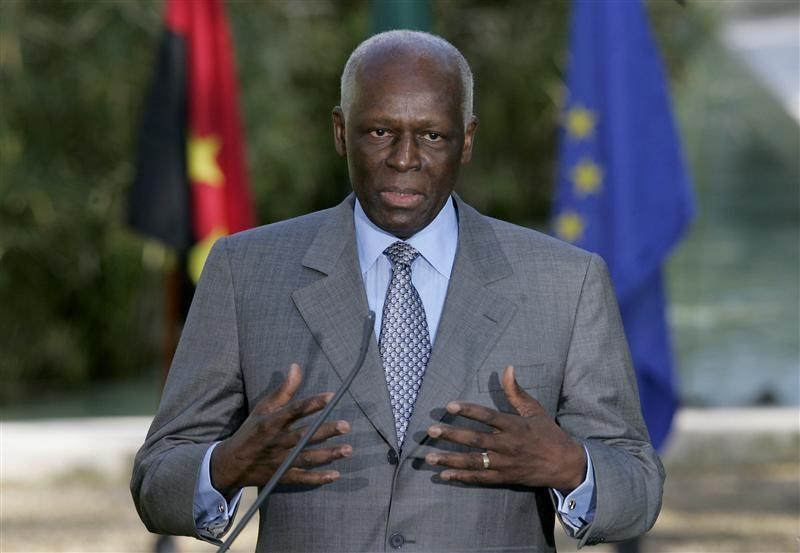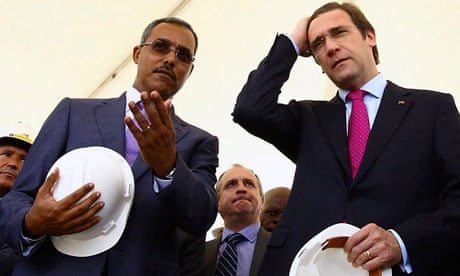On November 11, 1975, the southern African state of Angola became independent after 14 years of armed resistance to Portuguese colonial rule. Three major movements fighting the war – the Front for the National Liberation of Angola (FLNA), the Movimiento Popular de Liberación de Angola, (MPLA) and National Union for Total Independence of Angola (UNITA) – signed the Alvor agreement in January 1975.
Due to political differences amongst the parties that signed the agreement, civil war broke out which lasted up until 2002.
The MPLA, which seized power, was supported by Cuba and the Soviet Union; UNITA, which went to war, was supported by South Africa and the USA.

From the 15th century, Portuguese colonists began trading, and a settlement was established at Luanda (Angola’s capital) during the 16th century.
Portugal annexed territories in the region which were ruled as a colony from 1655, and Angola was incorporated as an overseas province of Portugal in 1951.
The Angolan War of Independence (1961–1974) ended when a leftist military coup in Lisbon in April 1974 overthrew Portugal’s Estado Novo regime. The new regime immediately stopped all military action in the African colonies, declaring its intention to grant them independence without delay.
Despite Portugal being one of the first countries to adopt the euro, in 1999, for over a decade before 2012, the country had seen severe economic slump caused partly by the country’s inability to efficiently allocate the foreign capital inflows it received after joining the Eurozone.
Ricardo Reis argues that underdeveloped credit markets in Portugal caused foreign capital to go to unproductive firms in the non-tradable (services) sector.
This, in turn, caused productivity to fall and the real exchange rate to appreciate, taking away resources from the tradable (manufacturing) sector.
Reis notes that in spite of the large increase in unemployment in Portugal — almost 17 percent at the end of 2012 — labour costs only recently started falling.

While in times past, Angolans relocated to Portugal in their numbers seeking political refuge, as well as, economic advantage, the tables soon turned.
Angola, on the back of its oil revenue, emerged as the country which invested heavily in its former colonial government’s country.
Under its former president Eduardo dos Santos’ leadership, Angola was wooed by former Portuguese Prime Minister, Pedro Passos Coelho (2011 to 2015) to invest in Energias de Portugal and [national grid] REN, as well as, other state-owned institutions in a privatization move.
Other state-owned entities the Prime Minister sought investment for included the national airline, Tap, and the Banco Português de Negócios.
At the time, José Eduardo dos Santos’ eldest daughter, Isabel dos Santos was part owner of Banco BIC of Angola. The businesswoman, who is reputed to be Africa’s richest woman made a bid for distressed Banco Português de Negócios bank for €40 million (about $44 million today).
And while Angola invests in the Portuguese economy, the country’s 1.8m barrel-per-day oil industry attracted Portuguese skilled and unskilled to throng the country in search for business and work opportunities.
Isabel dos Santos, Africa’s first female billionaire, also pushed for the merger between two major banks, Millennium BCP and Banco BPI, with an eye to create a new financial giant in Portugal with estimated assets of €124.6 billion (136 billion dollars today).
Portugal and Angola share a language and cultural affinity, as well as, family links and friendships. From 2010 to 2014, Angolan investments in Portugal rose from €645 million ($706m) to €1.53 billion ($1.7 billion), according to Bank of Portugal figures.
In 2013, Portuguese workers living in Angola sent over €304 million ($333 million) back to their cash-starved homeland. Angola was Portugal’s fourth-largest export market, with sales worth €3.2 billion ($3.5 billion) in one of the years.
Portugal’s economic woes led the European Union and International Monetary Fund to rescue the country with a €78 billion (now $85 billion) bailout in 2011.
Then Portuguese Prime Minister Pedro Passos Coelho worked hard to lure foreign investment, raising over €8 billion (almost $9 billion today) in a series of privatizations, including Angola’s notable input.

According to Ceslo Filipe, the deputy head of business magazine Jornal de Negócios, a survey revealed that Angolan assets and investment in Portugal was in the region of €10 billion ($11 billion) and €15 billion ($16 billion), with a wide range of interests in: the media (Impresa), energy (Galp), banking (Banco Comercial Português, Banco Português de Investimento), building and agrifood.
With a population of approximately 26 million, Angola is the third-largest economy in Sub-Saharan Africa and the second-largest oil producer in Africa. Its population is approximately 26 million.
In 2017, Angola exported $30.3B and imported $10.4B, resulting in a positive trade balance of $19.9B. In 2017, the GDP of Angola was $122B and its GDP per capita was $6.64K.
The top export destinations of the country are China ($18.5B), India ($3.77B), the United States ($2.41B), South Africa ($1.34B) and Spain ($964M).
The top import origins are China ($2.24B), Portugal ($2.02B), Brazil ($669M), South Africa ($637M) and the Republic of the Congo ($523M).










